‘No substitute for excellence’: Tuskegee Airman honored at The House
Brigadier General Enoch Woodhouse ’52 joined members of the Yale and New Haven community for a conversation on Tuesday at the Af-Am House.
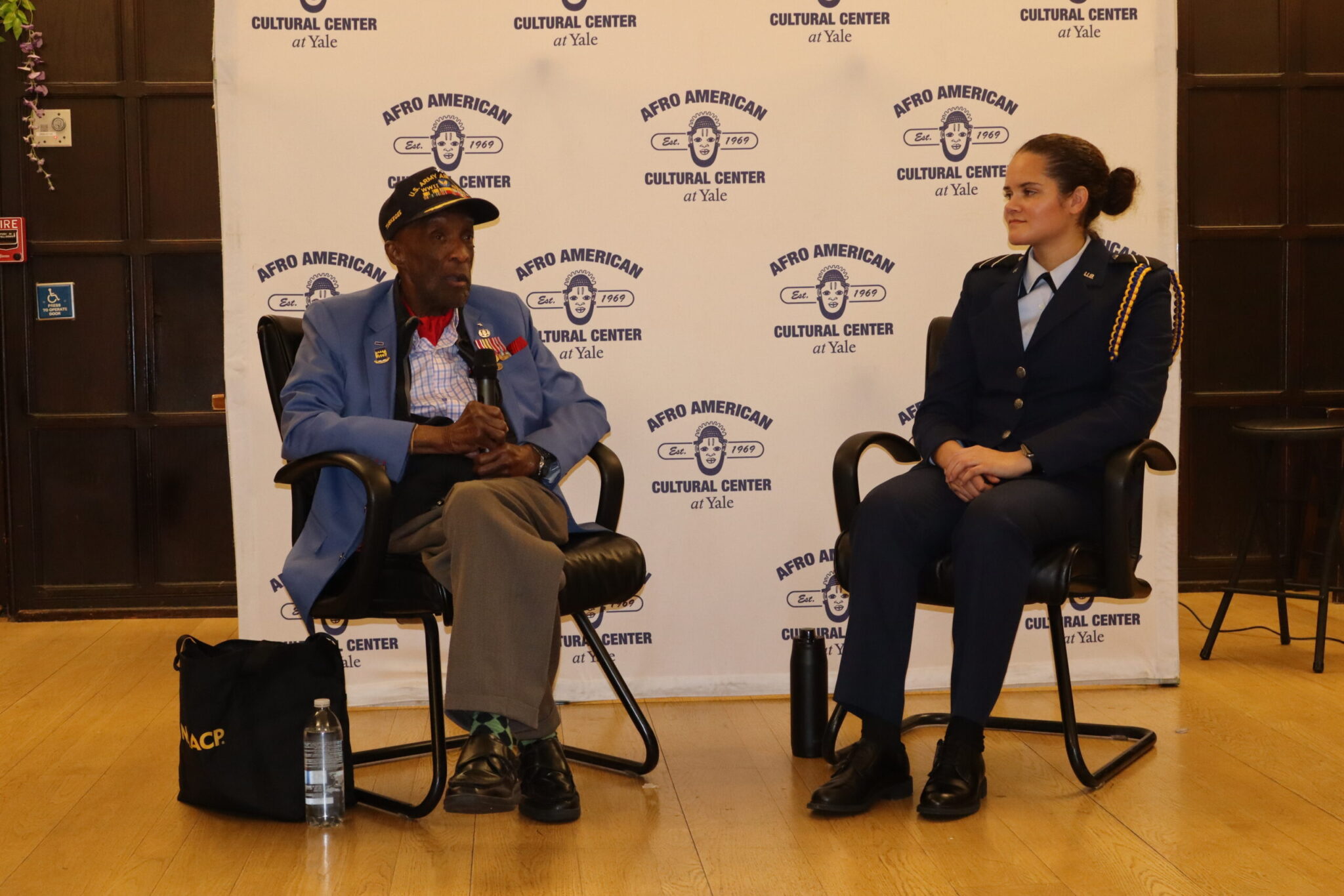
Courtesy of Fidah Kabwita, Af-Am House Staff
The Afro-American Cultural Center at Yale hosted a conversation on Tuesday night with Brigadier General Enoch Woodhouse ’52, a Yale alumnus and distinguished Tuskegee Airman. The general shared stories about his life and discussed topics ranging from his experiences as a student at Yale to being a member of the Tuskegee Airmen — the first all-Black aviation division in the United States Army Air Corps.
The conversation was moderated by Ceily Addison ’26, a cadet with the Yale Air Force ROTC Detachment, who explained that she found the experience personally meaningful. Addison’s father is a Black pilot, and she said the Tuskegee Airmen were always legends in her house.
“It’s amazing to hear from somebody who’s got that spirit, that camaraderie, that excellence, and that’s something we all, especially as Black students, have to take with us into the future … that’s how you become the change for the next generation,” Addison said. “And so, it’s just amazing to be sitting here, honored to be in uniform, honored to be able to speak with him.”
Woodhouse was one of four Black students in Yale’s class of 1952. But before he arrived on Yale’s campus in 1948, Woodhouse enlisted in the United States Army after graduating high school. He would eventually be assigned to the 332nd Fighter Group — known as the Tuskegee Airmen — as paymaster.
For most of Tuesday’s event at Yale, Woodhouse recounted his time at Yale and shared stories about his experience, sometimes offering wisdom to attendees in a blunt but insightful manner.
When he first arrived on campus, students in his entryway slipped “unwelcoming” notes under his door. Woodhouse said he tore them up. He also recalled that white students would leave the dining hall when he sat near them.
“I just ignored them. I had self-respect, I would take the right road,” Woodhouse said.
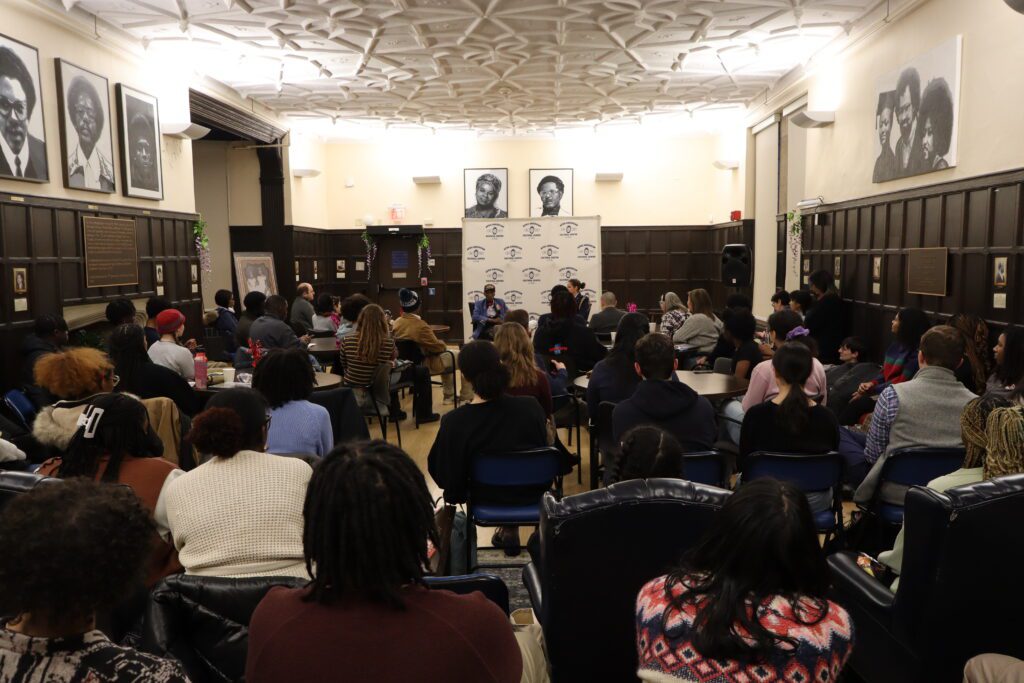
Woodhouse emphasized to the audience the importance of using Yale’s academic resources, like Sterling Memorial Library, and stressed that there is no substitute for excellence.
He discussed how essential it is for students to focus on academics and use what they learn to offer support for communities at home.
“When you go back to communities, they look to you for support,” Woodhouse said. “In addition to the advancement of Black, Brown and Asian communities, I care about the advancement of humanity. It can unadvance if we’re not in it together.”
The event then opened up to the audience for a question-and-answer session, during which he cracked jokes about Harvard and praised the establishment of the Af-Am House in 1969.
Woodhouse, who graduated nearly two decades before its founding, said that The House was “a dream realized.”
“Take advantage of your time at Yale,” Woodhouse noted in closing. “It’s collegial, try to get to know another person. It’s not a dating pool, it’s educational.”
After the end of the conversation, The Yale Black Men’s Union presented Woodhouse with an honorary membership. The Yale Black Alumni Association and The House also gave Woodhouse and his wife gifts to commemorate his visit.
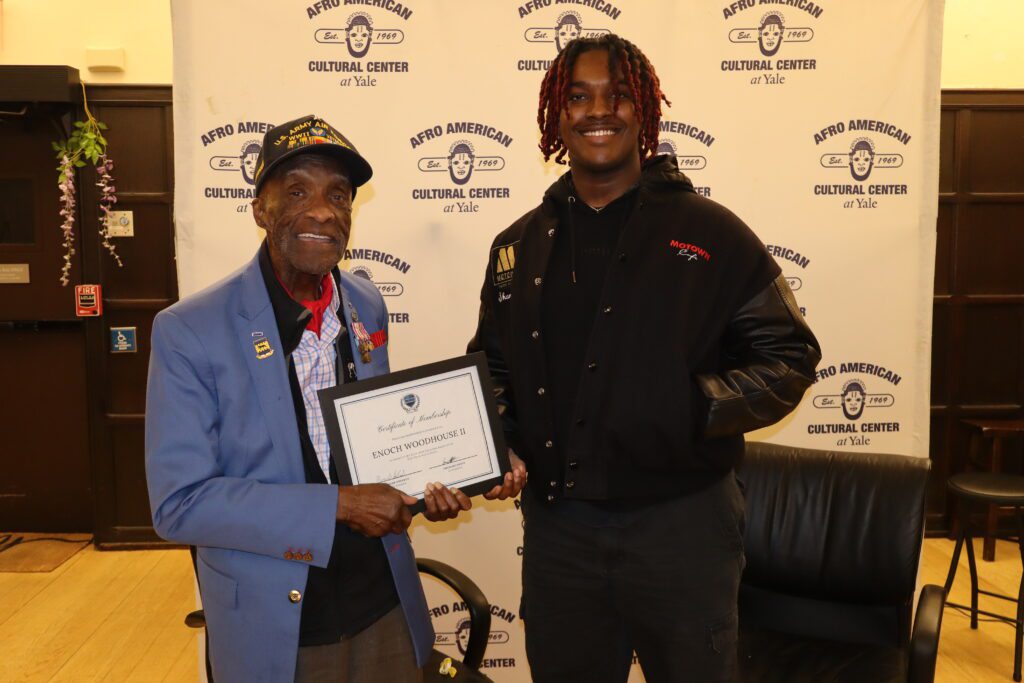
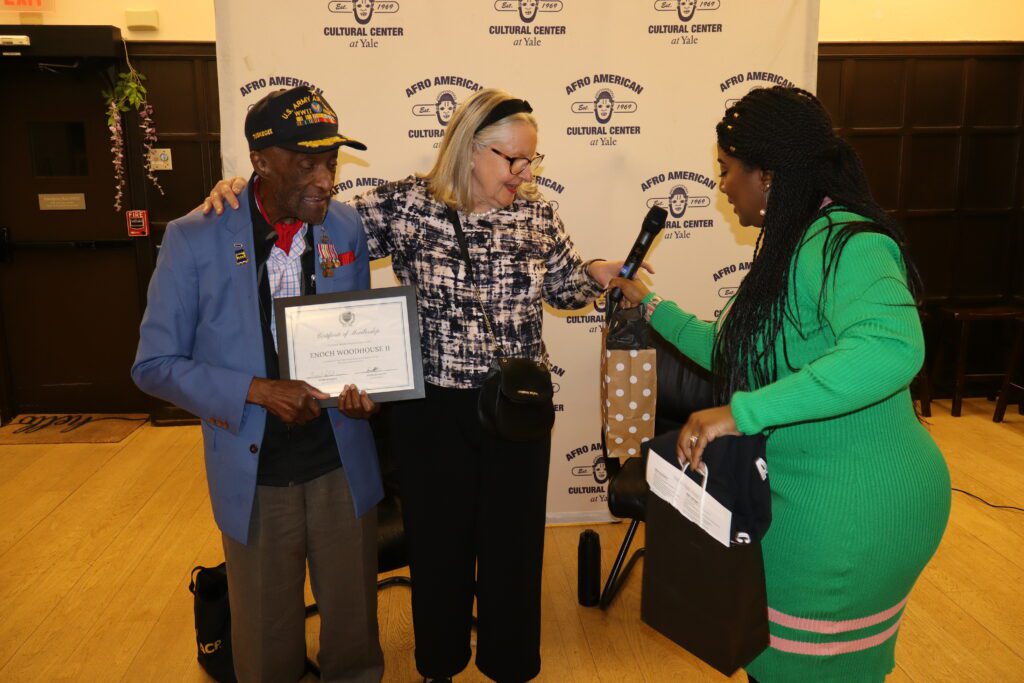
Since Woodhouse recently turned 97 years old, Af-Am House staff presented him with a birthday cake, sang the Stevie Wonder version of Happy Birthday and asked him to make a wish.
He turned and said his wish was that “The House continues success … and puts our [Black] graduates into the mainstream of America.”
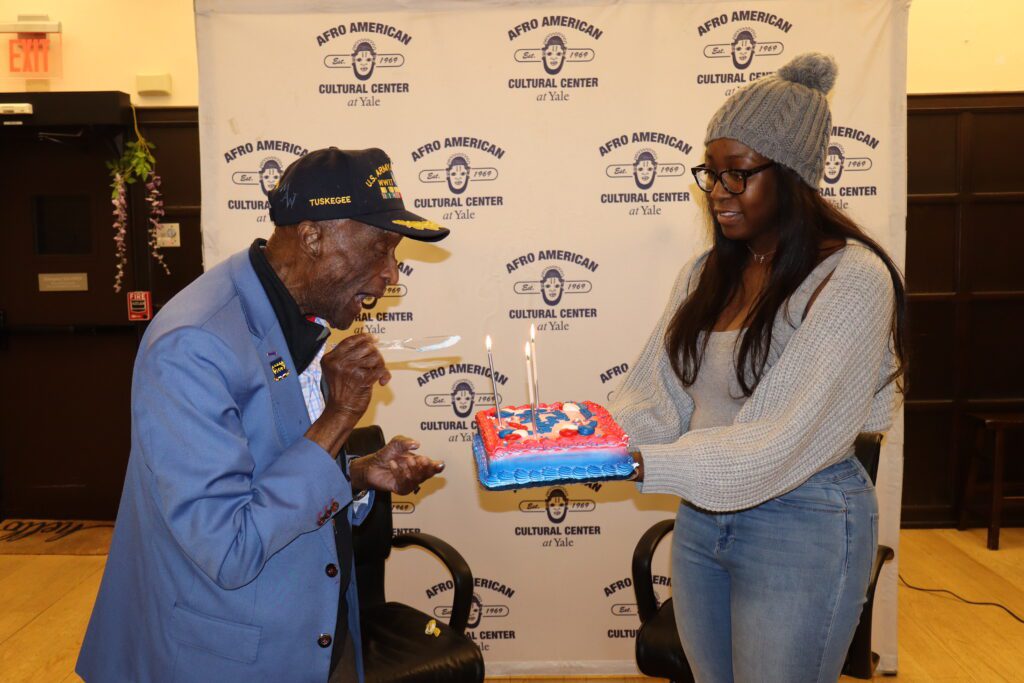
Attendants were able to shake hands, exchange hugs and take photos with General Woodhouse.
After the event, Woodhouse told the News why he tells his story around the country.
“America has to be educated to what America really is. Who really built America? Who really was enslaved by America? But at the same time, factors and individuals that canceled out the negativity and built on foundation, to make America America,” Woodhouse said. “I don’t believe in the saying, ‘Make America Great Again.’ America has always been great, and I say that America remains great.”
Timeica Bethel, Director of the Afro-American Cultural Center, helped organize the event.
Bethel noted the importance of representation and connection for Black students and alumni alike and expressed gratitude at Woodhouse’s visit.
“I often talk about how incomparable the Black Yale alumni network is; events like this really breathe life into those words,” Bethel told the News. “Representation matters. Welcoming alumni like Gen. Woodhouse back to campus gives students the opportunity to engage with people who have sat in their seats and gone on to have a tremendous impact. It’s a rare experience to be in such an intimate setting with a leader of Gen. Woodhouse’s stature.”
Before the formation of the Tuskegee Airmen, there were no Black pilots in the United States Armed Forces.







